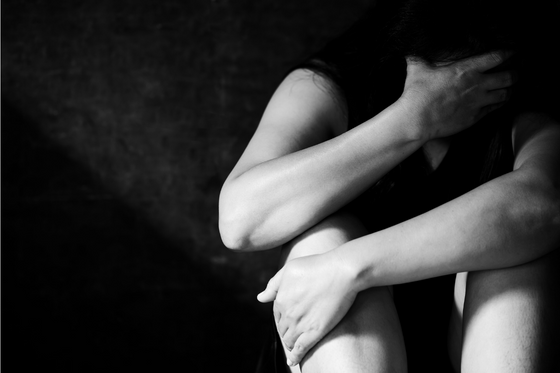
November 29, 2023
Court Persuaded Not to Give a Prison Sentence for Possession of a Knife

The purpose of this post is to help anyone accused of a domestic abuse offence understand exactly what 'domestic abuse' is. Offences involving domestic abuse are treated seriously in the criminal courts. Offending behaviour in a domestic context can have a significant impact on a wide range of decisions made by judges and magistrates, including determining how a trial should be proceed and what sentence to give an offender. Accordingly, the question 'what is domestic abuse' is of paramount importance to defendants and criminal defence lawyers alike.
‘What is domestic abuse’ is an important question within the context of the criminal justice system. This is because offences involving domestic abuse are taken very seriously by the police and in the criminal courts in a number of different ways. One of the most significant considerations for someone convicted of such an offence is the impact on the sentence passed. Magistrates and judges will view the fact that the behaviour occurred in a domestic context as an aggravating feature. For example, an offence of assault by beating in a domestic context will likely attract a longer custodial sentence, more onerous community order, heavier fine, etc than similar behaviour in a non-domestic context.
Whether the offence is considered to be one of domestic abuse or not is of significance when it comes to a number of other decisions and considerations, such as:
Accordingly, whether behaviour is considered to be domestic abuse or not is a crucial feature to be taken into account by a criminal defence lawyer when advising a client.
The definition of domestic abuse has been extended over the years, with the behaviour itself developing from being called ‘domestic violence’ to ‘domestic abuse’. This change removes the perceived emphasis on physical violence, encompassing a much broader spectrum of behaviour. This is reflected in the preventative orders which a court can make, changing from Domestic VIOLENCE Protection Orders in 2014 to Domestic ABUSE Protection Orders in 2023.
The current definition of domestic abuse is contained within section 1 of the Domestic Abuse Act 2021, which came into force on 1 October 2021. There are three parts to the definition:
We will now look at each part in turn:
Behaviour is considered abusive if it consists of any of the following:
To fall within the definition of ‘abusive behaviour’ it does not matter whether the behaviour happens on one occasion or is a course of conduct (i.e. happening on a number of occasions). The behaviour can also be considered as being towards another, even if it is actually directed at a third person. For example, A’s behaviour can be considered as domestic abuse towards B, even if the behaviour is actually directed at B’s child.
Some of these behaviour types require a little more explanation:
The Government’s Explanatory Notes to the legislation refer to controlling behaviour as being ‘a range of acts designed to make a person subordinate and/or dependent by isolating them from sources of support, exploiting their resources and capacities for personal gain, depriving them of the means needed for independence, resistance and escape and regulating their everyday behaviour’.
The same notes refer to coercive behaviour as being ‘a continuing act or a pattern of acts of assault, threats, humiliation and intimidation or other abuse that is used to harm, punish or frighten their victim’.
It will be noted that both explanations refer to ‘a range of acts’ and ‘a continuing act or pattern of acts’. Accordingly, it is apparent that for controlling or coercive behaviour to be made out there needs to be more than a single incidence of behaviour, notwithstanding the reference in section 1(3) of Domestic Abuse Act 2021 to it being possible for abusive behaviour to occur on just one occasion.
You may be aware that engaging in controlling or coercive behaviour in an intimate or family relationship is an offence in its own right, contrary to section 76 of the Serious Crime Act 2015. It carries a maximum sentence of five years’ imprisonment.
Economic abuse is defined within section 1(4) of the Domestic Abuse Act 2021 as behaviour by the perpetrator having a substantial adverse effect on the victim’s ability to acquire, use, or maintain money or property, or obtain goods or services.
The reasoning behind including the words substantial and adverse effect is to ensure that certain types of isolated incidents are not included. The Government’s Explanatory Notes give examples such as damaging someone’s car (which can constitute an offence of criminal damage in any event), or not disclosing financial information, as being excluded from the definition. Notwithstanding the Explanatory Notes, it is virtually certain that a court will consider an offence occurring within a domestic context where, for example, one spouse criminally damages the car of the other.
‘Property’ covers items such as a mobile phone or a car and also include pets or other animals (for example agricultural livestock). ‘Goods and services’ covers, for example, utilities such as heating, or items such as food and clothing.
The abusive behaviour must be between two personally connected people for it to be considered as domestic abuse. ‘Personally connected’ is defined within section 1(2) of the Domestic Abuse Act 2021 as being people who:
The relationship between a disabled person and carer does not fall within the definition of ‘personally connected’ in and of itself, unless the people are connected in one or more of the specific ways set out above.
For behaviour to be considered domestic abuse, both the (alleged) victim and abuser have to be aged aged 16 or over (section 1(2)(a) of the Domestic Abuse Act 2021). This most obviously excludes from the definition of domestic abuse offences involving a child under 16 as a perpetrator or a victim. The Explanatory Notes refer to offences against a child under 16 being classified as ‘child abuse’ rather than ‘domestic abuse’. Whilst this is understandable, it appears to create a loophole where a child under 16 is the perpetrator; suggesting that abusive behaviour towards someone personally connected to them (see above) does not fall within the definition of domestic abuse.
Whilst section 1(2)(a) of the 2021 Act suggests that children under 16 cannot be considered victims of domestic abuse, this is not the end of the story. Section 3 of the Act covers the situation where a child (in this section, meaning someone under 18 rather than 16) ‘sees or hears, or experiences the effects of, the abuse’ between the victim and abuser (i.e. personally connected people aged 16 or over). A child is considered to be a victim of domestic abuse in these circumstances if he/she/they are related to the victim and/or abuser.
The distinction between a child being a victim of domestic abuse or a victim of child abuse is somewhat subtle within the 2021 Act. Essentially, if a child under 18 experiences domestic abuse in the circumstances set out above, the child is considered to be a victim of domestic abuse. Conversely, if the abusive behaviour is directed at a child under 16 it is considered to be child abuse. If the abusive behaviour is directed at a 17-year old it will be domestic abuse (it will also be domestic abuse if the 17-year old is the perpetrator).
In summary, the definition of domestic abuse is very important in criminal law. It affects the powers of the police and the courts, as well as the decisions they can make. Those accused of domestic abuse offences are usually in a more perilous than non-domestic abuse offenders, especially when being sentenced. If you are accused of a domestic abuse offence, being represented by experienced and expert criminal defence lawyers will make all the difference to you . Hill Twine Solicitors will provide the expert specialist criminal defence representation you need. Contact us today to find out how we can help you.
If you have any questions or need advice